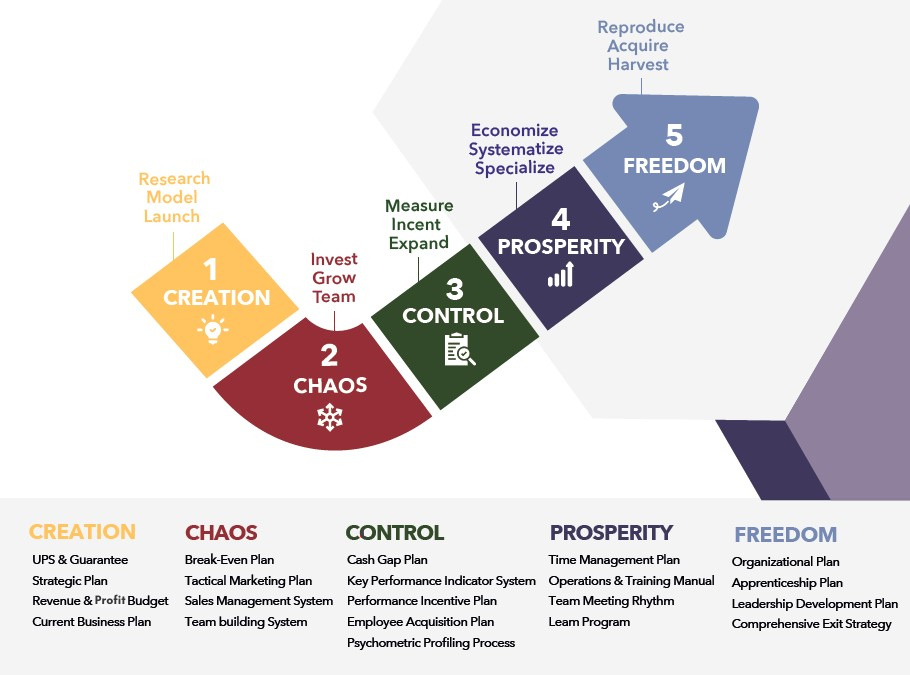BLOG
BLOG

Why Most Business Owners Run Out of Time (and What to Do About It)
1. The Universal Problem: “I Just Don’t Have Enough Time”
If you’ve ever ended the day wondering where the hours went - inbox overflowing, fires to put out, and your highest priorities untouched - you’re not alone.
Nearly every business owner feels like they’re chasing time. You’re stuck responding to what’s urgent instead of moving forward on what actually matters. It’s exhausting. But here’s the truth:
You don’t have a time problem. You have a priority problem.
Time is fixed. Everyone gets 168 hours a week. The difference between the overwhelmed and the effective? It’s how they decide what gets their time.
2. The Real Reasons Business Owners Run Out of Time
A. Priorities Are Unclear
Most time stress doesn’t come from being unproductive - it comes from being busy with the wrong things.
When everything feels important, nothing gets finished. The loudest email, the newest idea, or the client yelling the loudest ends up stealing the day. But running a business like that is like steering with your rearview mirror.
Clarity is the cure.
B. No Weekly or Daily Planning Rhythm
Without a structured planning rhythm, your week runs you - instead of the other way around.
Most business owners don’t start their Monday with a clear roadmap. Instead, they jump into the noise and hope they land somewhere productive.
But if you don’t pre-allocate your time with intention, it will disappear by default.
C. Overcommitting and Under-Scheduling
Saying “yes” to everything is the fastest path to burnout. But here’s what’s worse: most owners underestimate how long things take.
When your calendar doesn’t reflect your real commitments, chaos is guaranteed. You’ll either drop the ball or burn out trying not to.
3. How to Regain Control of Your Time
A. The Power of a Weekly Planning Ritual
Carve out 30 minutes every Sunday evening or Monday morning. No distractions. No emails. Just you and your calendar.
Review your current Rocks (your top 3–5 quarterly goals)
Choose your Top 3 Outcomes for the week
Map them into your diary before anything else claims the space
B. Use the “3–5 Priorities” Rule
You don’t need 27 priorities. In fact, if you do - you have none.
Instead, choose 3–5 key outcomes that move the business forward. These are your Rocks (Most Important Tasks).
Everything else is a distraction or a “nice-to-have.” Be ruthless.
C. Finish Today by Planning Tomorrow
In the last 10 minutes of your workday, write tomorrow’s top 1–3 priorities. This small habit gives your brain direction while you sleep - and your future self clarity when you log on in the morning.
You’ll start each day with purpose, not panic.
4. Tools and Tactics That Actually Work
A. The Default Diary
This is time-blocking done right.
Instead of reacting to every interruption, proactively block your calendar by category. For example:
Marketing & Growth: e.g., Tuesday 10–12pm
Sales & Follow-Up: e.g., Wednesday 2–4pm
Deep Work/Strategy: e.g., Thursday 9–11am
Admin & Emails: e.g., Friday 3–4pm
If it’s not in the diary, it doesn’t exist.
B. The 80/20 Focus Filter
80% of your results usually come from 20% of your actions.
So ask: What are the few things only I can do that drive real value in the business?
Then double down on those and either delay, delegate, or delete the rest.
5. Mindset Shifts That Make a Difference
A. From “Busy” to “Productive”
Being busy isn’t a badge of honour. It’s often a sign of poor systems.
True productivity is doing fewer things - but the right ones - and doing them well.
B. From Reactive to Proactive
The real freedom comes when you stop reacting to the day and start designing it.
Your calendar is a tool, not a to-do list. It reflects your values, your goals, and the kind of business you’re building.
6. What to Do When It Still Feels Like Too Much
Even with the best planning in the world, business can still feel overwhelming.
That’s because sometimes the real issue isn’t time - it’s capacity.
You’re trying to do too much, with too few systems, or without enough help. In that case, the next step is to:
Start delegating low-value tasks
Systemise what repeats
Build a team that can carry the load with you
Time management will only take you so far if your business model depends on you doing everything yourself.
7. Final Thought: You Don’t Need More Time - You Need a Better Plan
If you’re constantly rushing, drowning in tasks, or ending the week without progress - it’s not because you’re lazy. It’s because you’re under-planned.
But planning is a skill. And it compounds. The more you practice, the more clarity you gain, and the more control you reclaim.
So start today. Take 10 minutes, right now, and ask:
What are my top 3 priorities for tomorrow?
What time have I blocked to work on them?
If you build the habit, the results will follow.
Bonus: Want Help Creating a Default Diary That Works?
If you’re feeling stretched but not seeing results, business coaching can help you reset your rhythm and build a business that works - without sacrificing your time, health, or family.
Book a complimentary 15-minute call and let’s explore whether coaching is a fit: https://www.butleradvisory.com.au/time-with-trent
Free Methodology Presentation: Learn Our Proven 5-Step System For Transforming Your Business Into A Firm That Runs Smoothly, Profitably and (mostly) Without You
Free Methodology Presentation: Learn Our Proven 5-Step System For Transforming Your Business Into A Firm That Runs Smoothly, Profitably and (mostly) Without You.
Confirm Your Details To Continue
Confirm Your Details To Continue

Schedule a call to see if our approach can help take your business to #1 in your market.
No pie-in-the-sky. No generic ideas.
No hard sell.
Just straight-forward analysis of your approach to marketing and sales, team-building skills, gross and net profitability, and business transfer readiness.
